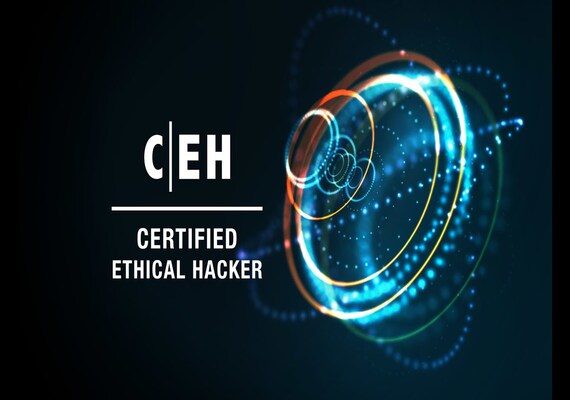
Overview of Ethical Hacker CEH v11
Are you ready to delve into the world of cybersecurity and ethical hacking? The Ethical Hacker (CEH) v11 certification program offers a comprehensive training experience, equipping you with essential skills and knowledge to combat cyber threats effectively.
This program focuses on cutting-edge tools, techniques, and methodologies used by hackers, empowering you to proactively defend against security vulnerabilities. From penetration testing to malware analysis, you'll gain expertise in critical areas of cyber defense.
CEH v11 prioritizes ethical and legal considerations, ensuring that you understand the importance of conducting security assessments within ethical boundaries.
This globally recognized certification from Ariyath Academy in Tiruvannamalai is your gateway to a successful career in cybersecurity and ethical hacking. Dive into our cybersecurity course today and become a certified ethical hacker, ready to secure cyberspace with integrity and expertise.
Syllabus
- • Understanding the role of an ethical hacker
- • Overview of hacking concepts and methodologies
- • Legal and ethical considerations in cybersecurity
- • Information gathering techniques
- • DNS enumeration and footprinting
- • Social engineering and OSINT (Open Source Intelligence)
- • Network discovery and mapping
- • Port scanning techniques
- • Vulnerability scanning and analysis
- • Active and passive enumeration
- • SNMP enumeration
- • LDAP enumeration
- • Password cracking techniques
- • Escalating privileges
- • Covering tracks and maintaining access
- • Types of malware (viruses, worms, trojans)
- • Malware analysis and reverse engineering
- • Packet sniffing and analysis
- • ARP spoofing and poisoning
- • Mitigating sniffing attacks
- • Human-based attacks
- • Phishing and spear-phishing
- • Impersonation and manipulation
- • Types of DoS attacks
- • DDoS (Distributed Denial-of-Service) attacks
- • Countermeasures and prevention
- • Session hijacking techniques
- • Countermeasures and detection
- • Techniques to bypass security measures
- • IDS (Intrusion Detection System), firewalls, and honeypot evasion
- • Web application vulnerabilities
- • SQL injection, Cross-Site Scripting (XSS), and CSRF attacks
- • Security best practices for web applications
- • Wireless security protocols
- • WEP, WPA, and WPA2 vulnerabilities
- • Wireless hacking tools and countermeasures
- • Cryptographic concepts and algorithms
- • Public key infrastructure (PKI)
- • Cryptanalysis and attacks on cryptographic systems
- • Planning and executing penetration tests
- • Reporting and documentation
- • Post-exploitation techniques
- • Cloud computing security challenges
- • Securing virtualized environments
- • Testing cloud infrastructure and services
Understand the 5 Phases of Ethical Hacking
Ethical hackers follow a step-by-step process to check and secure company networks:
• Learn About the Target: They gather information about the network they're testing, like how it's set up and any weak spots it might have.
• Search for Openings: They look for ways to get into the network, like finding unlocked doors in a building.
• Get Inside: Once they find a way in, they explore the network to see what they can access, like going through files on a computer.
• Stay Inside: They try to keep access to the network so they can see if any more problems pop up later.
• Cover Their Tracks: After they're done testing, they clean up any signs that they were there, like erasing footprints in the sand.
Upcoming Batches
| October 4 | SAT & SUN weekend batch |
Timings 9:00AM to 11:00AM |
| October 11 | SAT & SUN Online batch |
Timings 9:00AM to 11:00AM |
| October 23 | MON & THU Offline batch |
Timings 9:00AM to 11:00AM |
| October 27 | MON & THU Blended batch |
Timings 9:00AM to 11:00AM |







